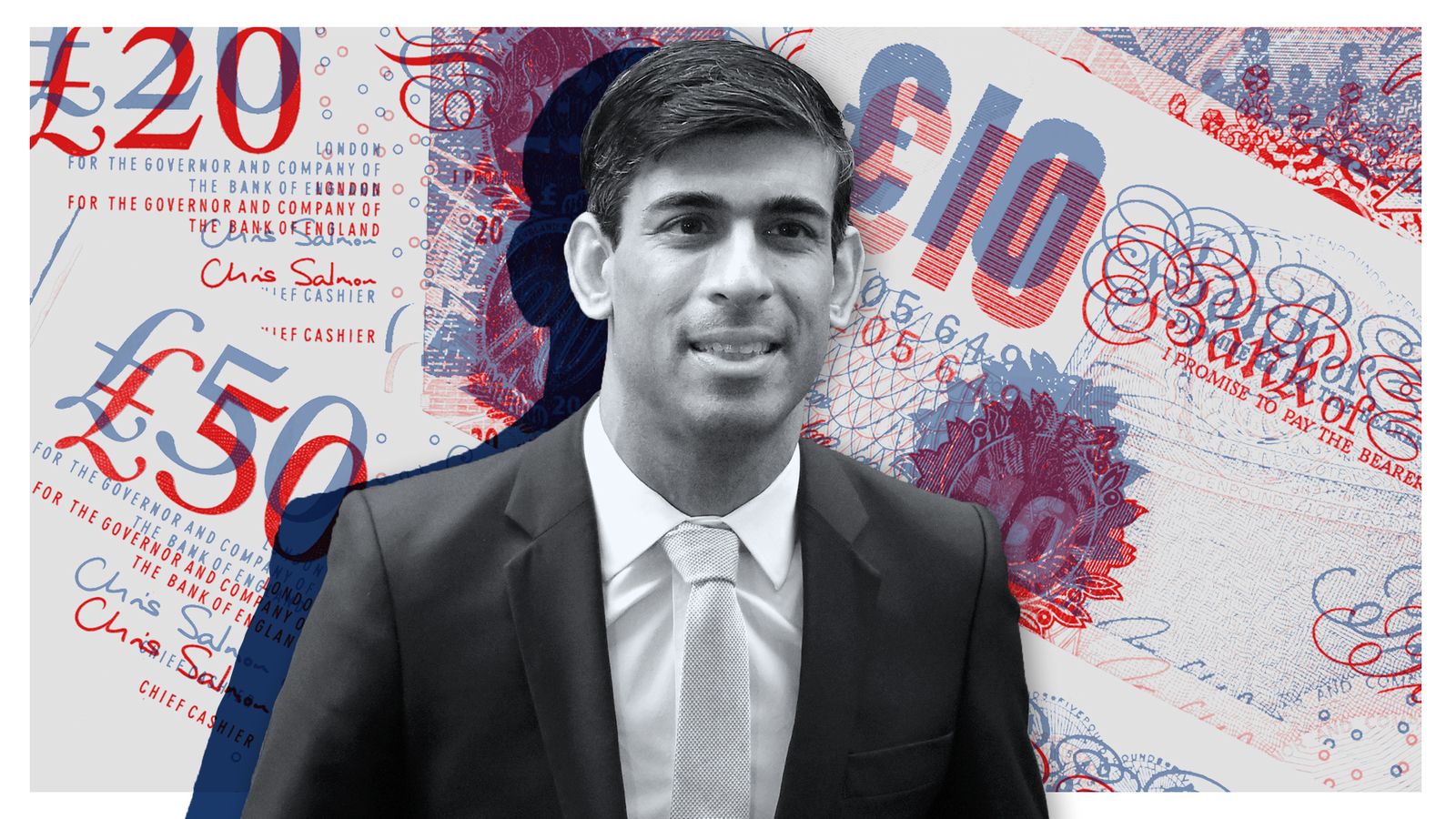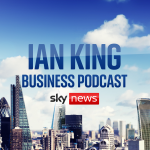The budget doesn’t just have ramifications on the Treasury – other parts of the economy will feel the effects of the announcements for months and years to come.
Taking a look at specific policies, Sky’s specialist correspondents have broken down what Rishi Sunak‘s headline speech means in their areas.
Please use Chrome browser for a more accessible video player
Get more live budget updates here
Sunak wants to stave off unemployment and give confidence to businesses
By Paul Kelso, business correspondent
Like the rest of us, Rishi Sunak probably wanted to look forward to life after COVID, but the continued grip of the virus on the UK did not give him, or us, that luxury.
So this Budget was most significant for being yet another emergency statement, committing £65bn to broadly extend state support to business and individuals for another seven months to September.
Extensions to furlough, VAT relief, business rate holidays and fresh grants to companies are largely in line with what business was calling for.
By pushing most of these to September, well beyond the provisional 21 June date for a full reopening of the economy, he is hoping to give confidence to business and crucially trying to stave off an unemployment crisis.
Perhaps the most important number we heard today then is the OBR forecast that joblessness will peak at “just” 6.5, a figure that could see around one million more people out of work but many fewer than the 11% forecasters were predicting.
If that is right then Mr Sunak will not be alone in considering it a good outcome.
Please use Chrome browser for a more accessible video player
Climate was painted over with broad brush strokes and lacked policy
By Lisa Holland, climate change correspondent
It’s the last budget before the UK hosts the critical COP26 climate conference in November in Glasgow and there will be disappointment an opportunity has been lost to put green policies at the heart of the recovery.
The budget painted a post-COVID future in broad brush strokes of green and lacked policies and detail about how to get there.
That may fuel concerns that not enough has been done to prevent carbon intensive behaviours from being locked in.
The creation of the National Infrastructure Bank will be welcomed but we need to see more about what it will actually invest in.
The incentive payments for the hiring of apprentices will be welcomed but there was no detail on tying that to green skilled jobs.
Scientists will be hoping there is more detail to come from the Treasury
By Thomas Moore, science correspondent
Science has tamed the COVID pandemic. And the chancellor hopes it will help pay off the debt from the economic shock.
Vaccines have been created, made and put into vials here in the UK because the country has the facilities to take them from the lab bench to the world market – and people with the right skills to make it happen.
The chancellor now wants to build on that, turning the UK into a science superpower.
He wants to attract high growth, innovative companies that will create stable, smart jobs that pay well and provide the Treasury with a healthy tax take.
He also promised a new unsponsored points-based visa system to attract the most promising talent in science and technology from around the world. That will be welcomed by companies that have faced restrictions on who they can hire.
But innovation is expensive and it needs government investment to turn big ideas into reality. Supercomputers and graphene have been winners in the past. But there was no mention of that in the Budget speech – and scientists will be hoping there is more detail to come.
Please use Chrome browser for a more accessible video player
The Universal Credit uplift will help – but it could leave millions worse off when it ends
By Nick Martin, people and politics correspondent
It’s astonishing to note that the number of people claiming Universal Credit has DOUBLED since the pandemic began.
To help people during the crisis, the government raised payments by £20 per week but said that would end in April.
For months now, it’s been clear that the government would have to extend that. Today, it has.
That so-called “uplift” will remain in place for another six months.
I’m with Becky Jones, a mum-of-three on Universal Credit who is trying to find work. She’s just told me: “It’s right that the government have kept the extra money going. I don’t know what I’d do if I lost £80 a month. But what happens in six months? We’d be back to square one? It needs to stay.”
The problem here is that the Universal Credit uplift will now end when furlough does and that could be a perfect storm which could leave millions of people worse off than they are now.
The arts have been handed support – but many venues will have wanted more from the chancellor
By Lucy Cotter, arts and entertainment correspondent
It’s very hard to argue that an extra £400m in support for the arts is a bad thing.
£300m will top up the existing £1.57bn culture Recovery Fund which was launched last year. This undoubtedly saved many venues, museums and galleries from permanent closure.
The extension of the furlough scheme will also be hugely beneficial to people working across the creative industries, in our theatres, cinemas and live events, so many of which have been closed for much of the pandemic and will be among the last to open.
However, the big criticism of the government’s recovery fund when it was launched was its focus on buildings and institutions and not people and that criticism continues today.
Despite announcing an extension to the self-employed scheme many freelancers who form the bedrock of the arts – actors, musicians and performers have received nothing and continue to fall through the cracks.
There will also be disappointment across the sector the chancellor didn’t announce a government backed COVID-cancellation insurance scheme which could have significantly helped the events sector this summer.
A special edition of the Sky News Daily podcast will be available from 7pm.






















